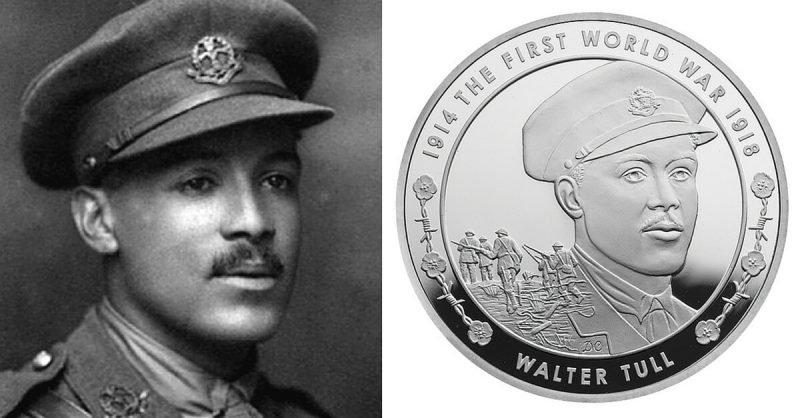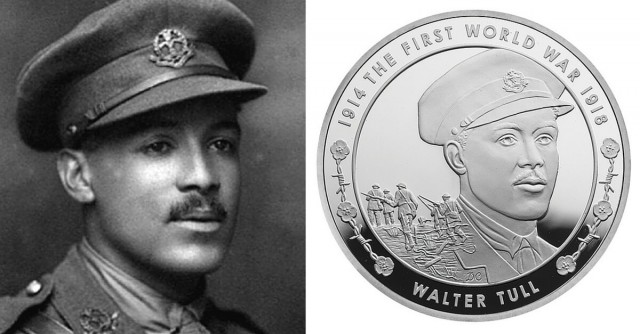Walter Daniel John Tull was born in Folkestone in South-East England on 28th April 1888. Walter’s father Daniel Tull, a carpenter, had come to England from Barbados (where his father had been a slave) and married Elizabeth Palmer, a white girl from the county of Kent.
Walter’s mother died from cancer when he was seven years old. His father remarried, but he died shortly afterwards. Walter’s stepmother was unable to support Walter and his brother Edward, so they were sent to a children’s home in Bethnal Green, East London. Edward was later adopted by a family from Glasgow in Scotland and went on to become the first person of mixed race in Britain to qualify as a dentist.
Walter loved football, and this eventually led to him playing the game at a high level. He played for Clapton Football Club in the Football Association Amateur Cup competition in 1908 and 1909 and became the first mixed-race person in England to win a senior footballing medal. That success and his playing ability led to a professional signing by Tottenham Hotspur.
He played for the first team on ten occasions and scored twice, but he was later relegated to the reserves side. This was possibly due to the racial abuse that he was subjected to by fans of opposing teams, each time he played. A later signing by Northampton Town FC in 1911 was more successful – Tull played in 111 games and scored nine goals for the club.
In 1914, at the outbreak of the First World War, Tull enlisted in the British army. He fought at the Battle of the Somme, rising to the rank of sergeant. Subsequently, he was commissioned as a second Lieutenant in the Middlesex Regiment, becoming the first ever mixed-race combat officer to serve in the British army.
Tull fought in Italy in 1917/18 and was recommended for a Military Cross for his gallantry and coolness in action. He returned to France and was killed in action on 25th March 1918, seven months before the end of the War. His body was never found.
The British Royal Mint strikes special £5 coins to commemorate occasions of national importance, and in June 2014, it announced a series six-coin sets of these coins to mark the centenary of the First World War. All of the handsome coins honour people or events of importance, and one of them features Walter Tull, a man who came from humble beginnings, overcoming all obstacles to achieve distinction serving his country.

